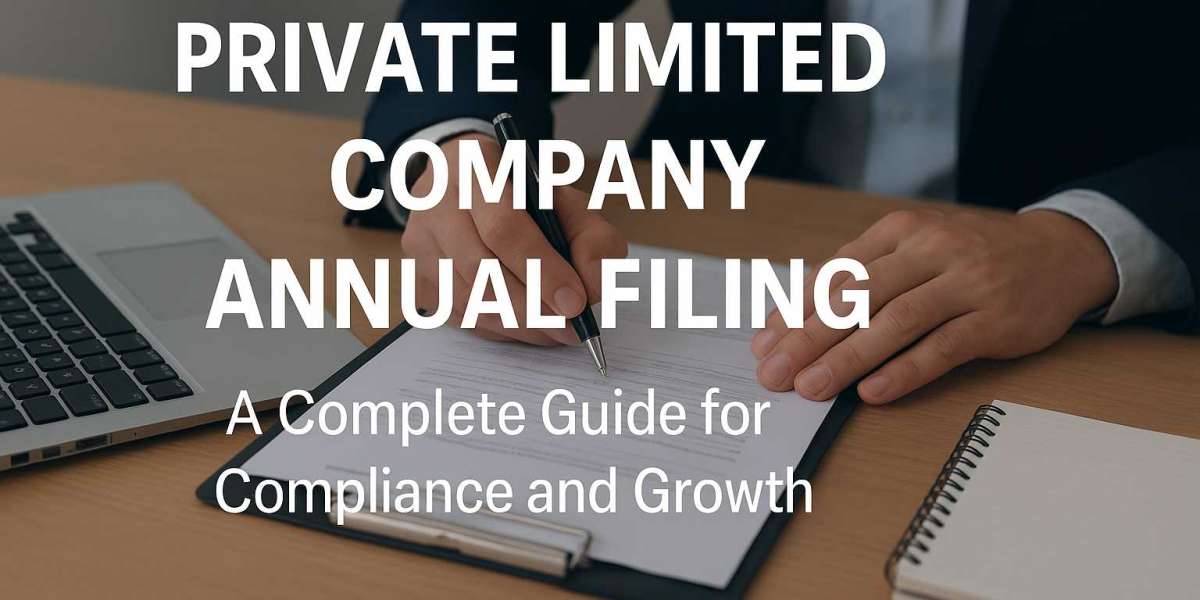Running a private limited company in India comes with immense opportunities but also the responsibility to stay compliant with the legal and regulatory framework. Among the crucial responsibilities of company directors is the annual filing, which ensures that the company’s financial and governance details are transparently reported to the Ministry of Corporate Affairs (MCA). Understanding these obligations helps businesses avoid penalties and maintain credibility with stakeholders.
What is Private Limited Company Annual Filing?
Every registered private limited company in India, regardless of its size or turnover, must file annual returns and financial statements with the Registrar of Companies (ROC). This process is collectively referred to as Private limited company annual filing. The filings disclose details about the company’s activities, financial health, and governance practices.
At ebizfilling, we specialize in guiding businesses through their compliance journey, ensuring that all statutory requirements are met accurately and on time.
Key Forms Required for Annual Filing
The annual filing process primarily involves submitting the following forms to the MCA:
Form AOC-4 – For filing financial statements, including balance sheet, profit loss account, and related documents.
Form MGT-7 – For filing the annual return that covers details like shareholding pattern, directors, and other company information.
Form ADT-1 – For appointment or reappointment of auditors.
These forms must be submitted within the prescribed deadlines, typically 30 to 60 days after the Annual General Meeting (AGM).
Importance of Annual Filing
Annual filing is not just a compliance formality; it carries several benefits:
Legal Compliance – Avoid hefty penalties and disqualification of directors.
Transparency – Builds trust with investors, creditors, and stakeholders.
Business Opportunities – Well-maintained compliance records help in raising funds, applying for loans, and expanding business.
Corporate Governance – Reflects the professionalism and credibility of the company.
Penalties for Non-Compliance
Failure to comply with annual filing requirements can lead to severe consequences. Companies may face fines, late fees, or even legal proceedings. Additionally, directors can face disqualification from holding office in other companies. Therefore, timely compliance is essential for long-term stability.
How Professionals Can Help
For many entrepreneurs, navigating compliance requirements can feel overwhelming. Partnering with professionals like ebizfilling ensures that all deadlines are tracked, documents are prepared correctly, and filings are submitted seamlessly. This not only saves time but also eliminates the risk of errors and penalties.
Step-by-Step Process of Annual Filing
Hold a Board Meeting to approve financial statements.
Conduct an Annual General Meeting (AGM) within the prescribed timeline.
Prepare Financial Statements and finalize them.
File ROC Forms (AOC-4, MGT-7, ADT-1) with the MCA.
Maintain Proper Records for future reference and audits.
Final Thoughts
Compliance is the backbone of a sustainable and reputable business. Private limited companies must prioritize annual filing not only to fulfill statutory obligations but also to create a culture of transparency and accountability. With expert support from ebizfilling, businesses can stay stress-free, focus on growth, and ensure that compliance never becomes a burden.
Staying compliant today sets the foundation for stronger opportunities tomorrow. Make annual filing a priority and watch your company thrive with confidence.







